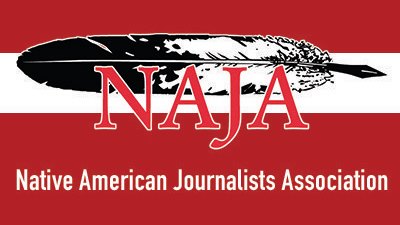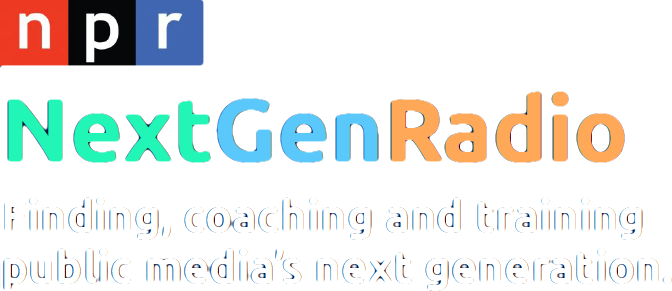
The impact of climate change
We are finding, coaching and training public media’s next generation. Five talented reporters are participating in a week-long state-of-the-art training program.
In this project we are highlighting the experiences of people whose lives are being affected by climate change.
Mariah Gladstone showcases Indigenous ingredients on her online cooking show to support food sovereignty in efforts to ensure a sustainable future for Indian Country.
Illustration by Lauren Ibañez
In Montana, Blackfeet chef uses food knowledge to combat global warming
“I was pretty lucky that I grew up in a house that, well, where my dad and grandpa built me a garden…and I got to grow foods that came from the earth,” Mariah Gladstone said while reminiscing about her childhood on the Blackfeet Reservation.
Northern Montana, where Gladstone calls home, is also the place where she produces her cooking show, Indigikitchen, which showcases how to make healthy dishes from traditional Indigenous ingredients. Gladstone’s love for cooking started when she was a child.
“When I was five, six years old, I would wake up and I’d say I had a dream about how to make these cookies and my mom let me have the freedom to experiment with those things at home,” Gladstone said.
With the encouragement from her mother, Gladstone often helped out in the kitchen with baking, preparing meals and retrieving fresh vegetables from their garden. Gladstone shared that measuring out ingredients was a way for her to practice her math skills.
She enjoys using ingredients from the earth to create something delicious. These early memories were the first moments where Gladstone understood and appreciated the cooking freedoms of making and tasting.
“I got that joy and that magic of seeing seeds grow into food that I put on my table. Even as, like, a first grader, I could come in and munch carrots covered in dirt and have that feeling of tasting things right out of the ground,” she said.
Gladstone comes from a reservation that sits by the east side of Glacier National Park where there’s an abundance of natural biodiversity.
LISTEN TO THE STORY
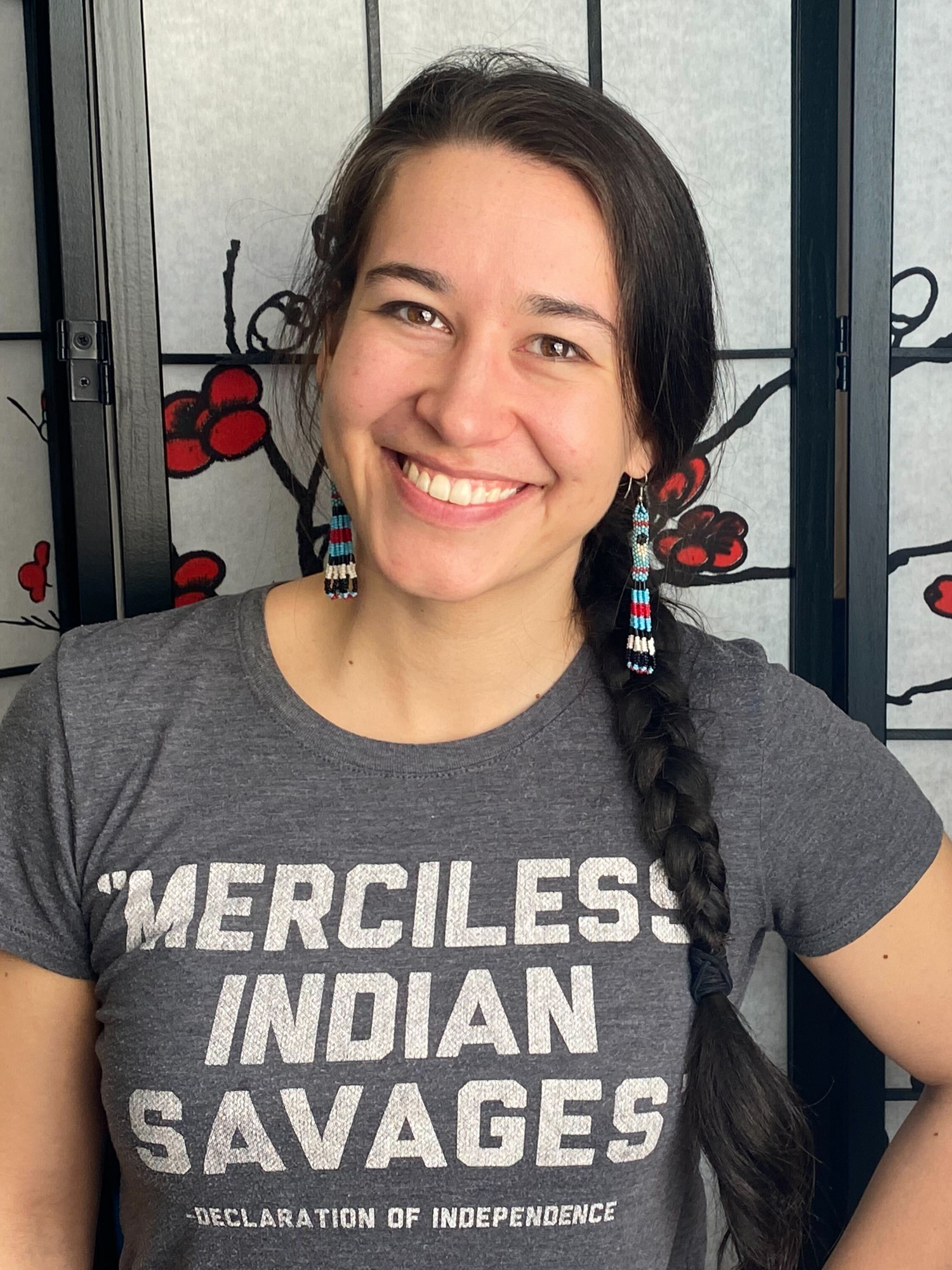
Mariah Gladstone from the Blackfeet Nation created Indigikitchen to help teach fellow Indigenous people how to cook with traditional foods.
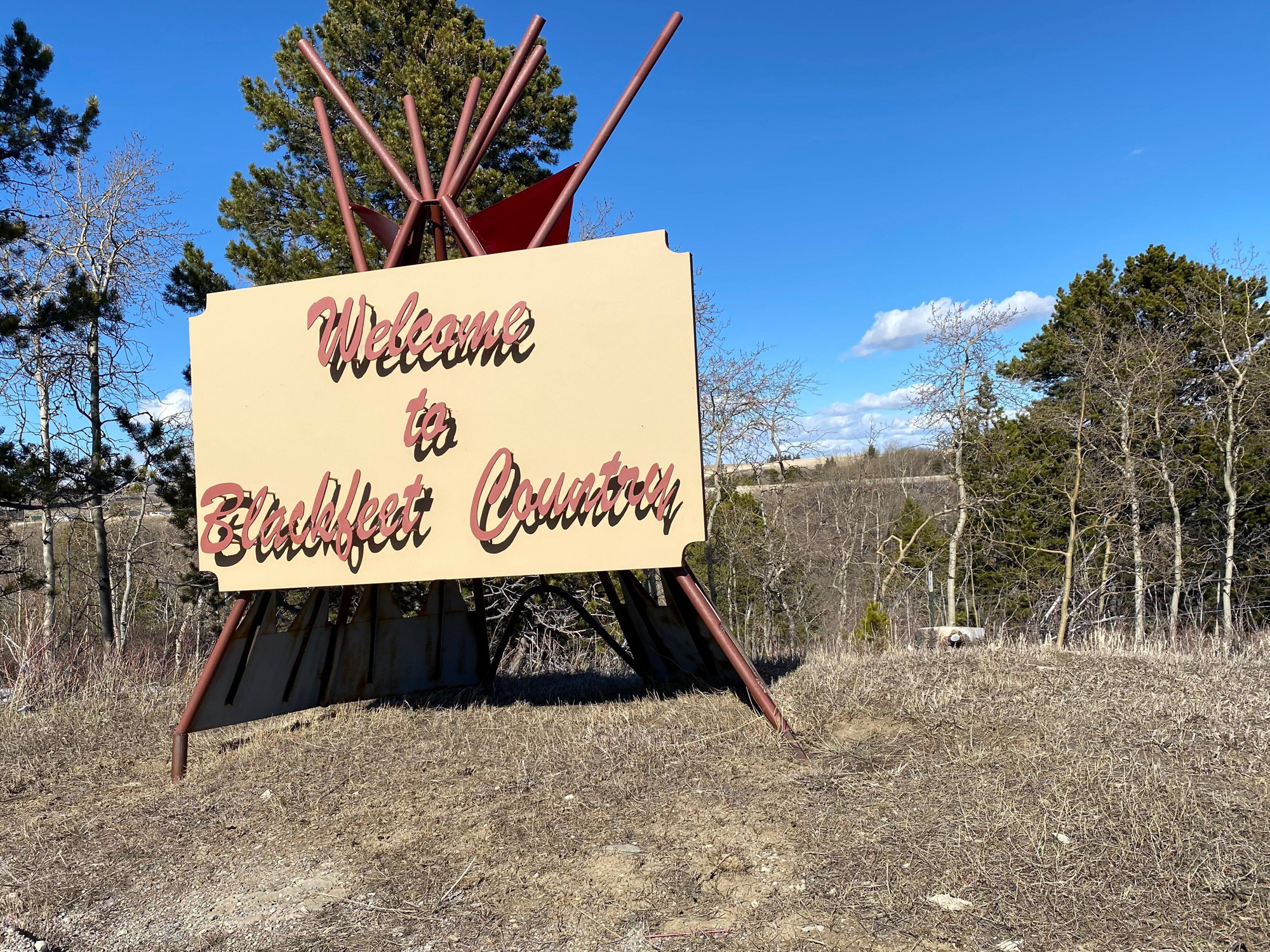
The beautiful view located at the southern part of the Blackfeet Reservation near Glacier National Park.
There are many ways that Gladstone helps feed her community, such as organizing a buffalo hunt using tribal hunting practices. But the warming climate has changed the migratory patterns of the herd.
“… because the winter was so mild down in Yellowstone this year, the bison really never migrated out of the park. And so there wasn’t the opportunity to go down there and harvest bison by the end of March, which is when the end of our season is,” said Gladstone
The use of practicing cooking and using sustainable ingredients is especially important for tribal members because of the growing effects of climate change. Plants that rely on the nutrients from surrounding wetlands are drying up due to droughts and Gladstone is concerned that these plants will go extinct without Indigenous agricultural practices.
“There were methods of planting that were called the Three Sisters… corn grows tall and straight and provides a support system for the beans, squash spreads out on the ground and prevents weeds from coming up,” said Gladstone, “if you have a year where maybe all of your squash failed, maybe squash bugs got to it…the pests that affect one do not affect the others. And so there is resilience in that diversity.”
Whether the work is being done on the frontlines of harvesting meats, resourcing native plants, or simply learning how to cook sustainably, Gladstone and the Indigikitchen are providing resources and opportunities for their community.
“…we recognize that we have a responsibility and a role in building food sovereignty and building our community’s ability to feed themselves.”
“Sharing the experience of berry picking or going peppermint picking and having that, and so I recognized where foods came from, besides just the grocery store,” Gladstone said.
Gladstone said that there is so much food available in the local ecosystem and that she wants to help teach people to cook with what they have.
FAST Blackfeet, the local food insecurity advocacy group, along with Gladstone also helps fight food insecurity on the reservation. She says that 300 individuals visit the pantry a week, many of whom are interested in preparing food using her cooking show.
“I get to see folks making comments on these videos tagging their family members asking, ‘can we make this recipe this weekend? Don’t you have some of this? Can we try to use something like that’, which is really, really cool to see,” Gladstone said.
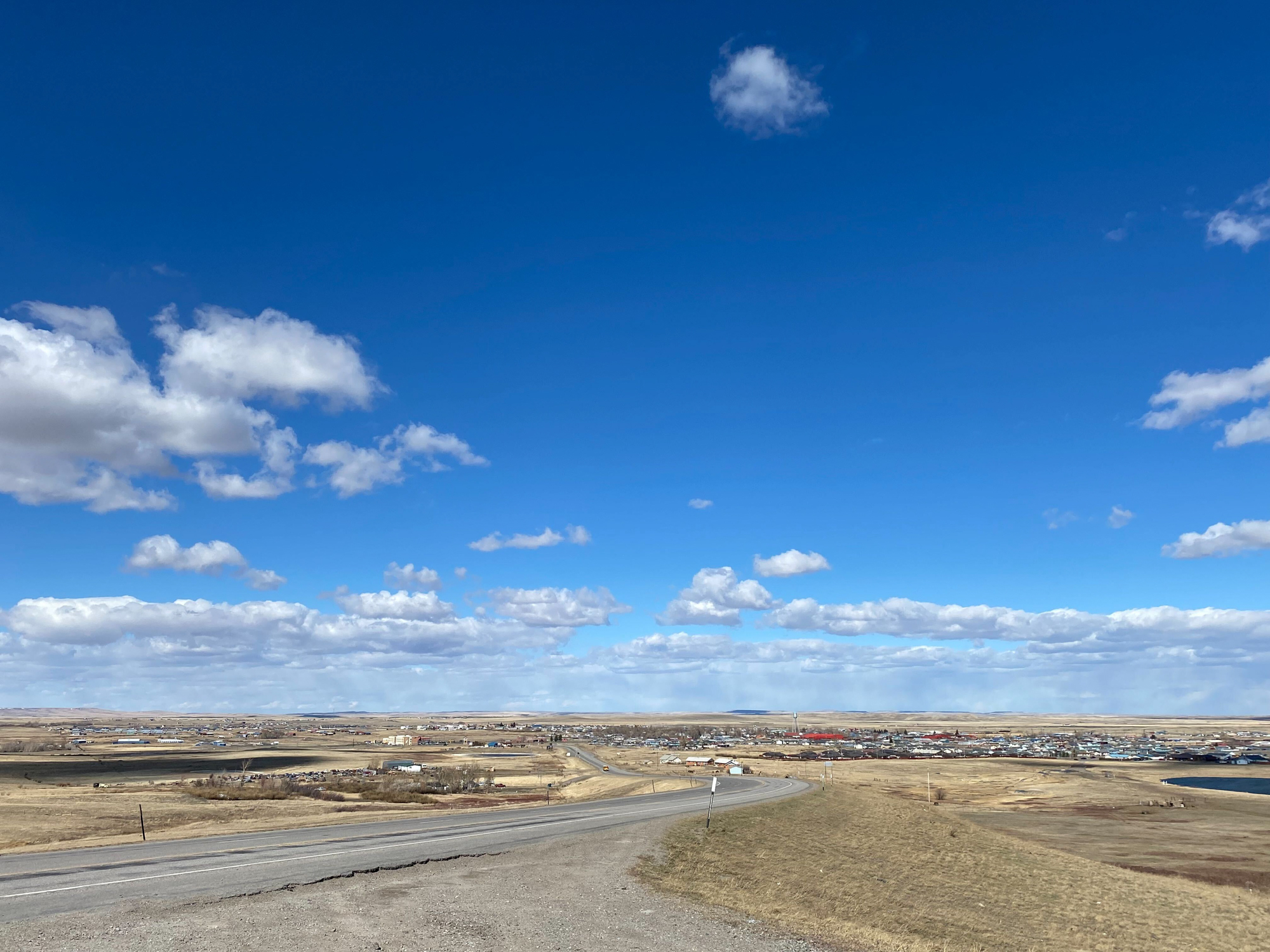
The town of Browning, Montana on the Blackfeet Reservation where FAST Blackfeet resides.
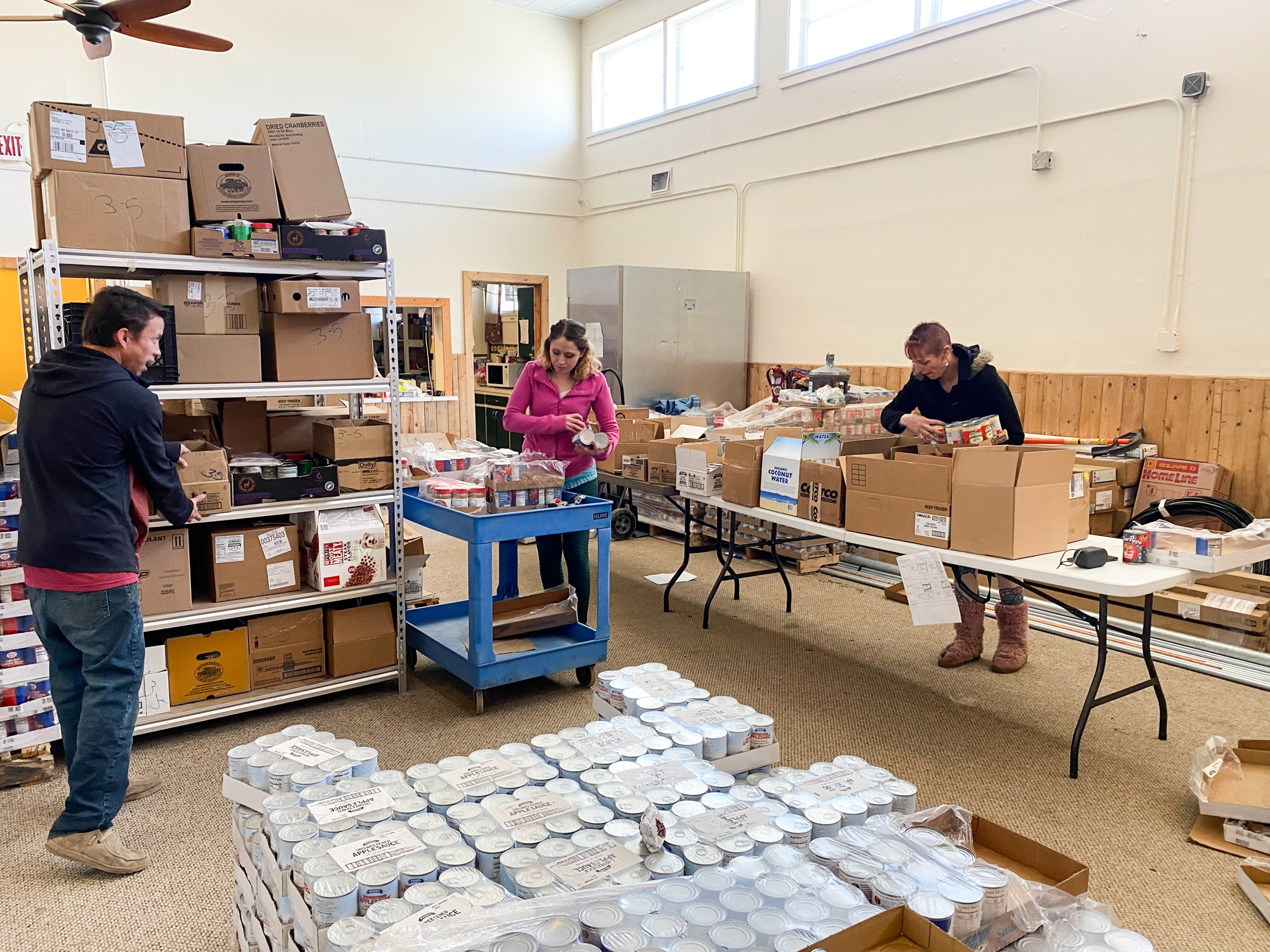
FAST Blackfeet is a local food pantry that provides emergency food to locals in order to help fight food insecurity, a problem on many reservations.
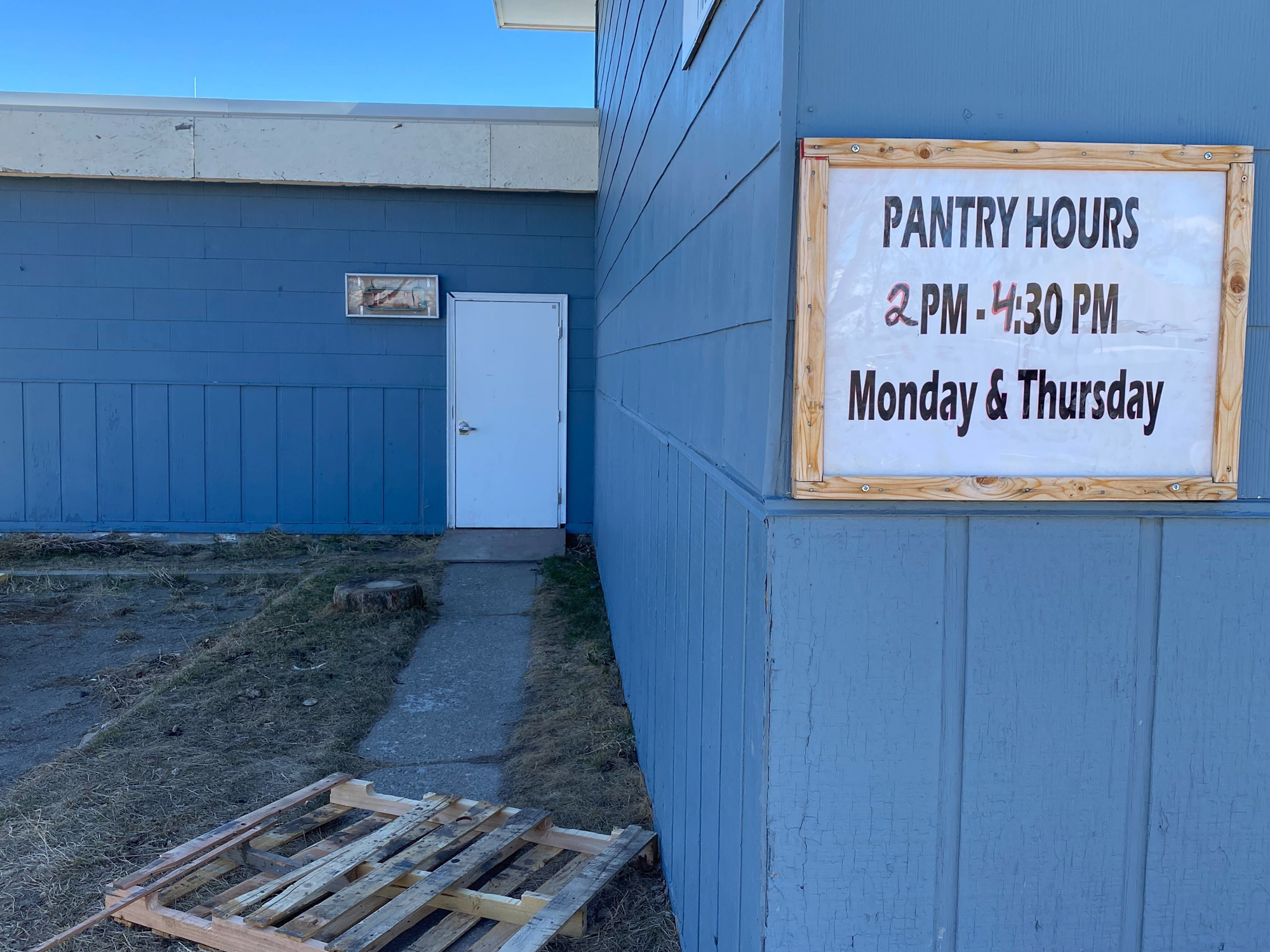
Fast Blackfeet pantry hours sign where many local Blackfeet tribal members have received food assistance throughout the pandemic.

ACKNOWLEDGEMENTS:
The Next Generation Radio Project is a week-long digital journalism training project designed to give competitively selected participants, who are interested in radio and journalism, the skills and opportunity to report and produce their own multimedia story. Those chosen for the project are paired with a professional journalist who serves as their mentor.
This edition of the #NPRNextGenRadio project was produced in collaboration with:
- Managing Editors – Michelle Faust Raghavan - Independent Editor, Portland, Oregon; Phyllis Fletcher - Independent Editor, Seattle
- Digital Editors – Alexis L. Richardson, Chief Innovation Officer/Digital Content Strategist, Philadelphia; Lita Beck (Navajo) - Senior Politics Editor, The Philadelphia Inquirer; Heather C. Gomez (Jicarilla Apache) - Freelance Digital Editor, Dulce, New Mexico
- Audio Tech – Selena Seay-Reynolds - Freelance Audio Engineer, Los Angeles; Abby Fritz, Freelance Audio Tech/Producer, Syracuse, New York
- Editorial Illustrators – Lauren Ibañez, Freelance Editorial Illustrator, Houston; Eejoon Choi - Freelance Editorial Illustrator, Los Angeles; Ard Su - Freelance Editorial Illustrator, New York
- Visuals – Todd Michalek, Freelance Visual Journalist, Syracuse, New York
- Web Developer – Robert Boos, Freelance Creative Technologist, Minneapolis
Our journalist/mentors for this project were:
- Pauly Denetclaw - Politics Reporter, Indian Country Today, Albuquerque, New Mexico
- Savannah Maher - Reporter, Marketplace, Albuquerque, New Mexico
- Taylar Stegner (Shoshone and Arapaho) - Tribal & Rural Reporter, Wyoming Public Radio
- Tarryn Mento - Reporting Fellow, WAER, Syracuse, New York
- Carrie Jung - Education Reporter, WBUR, Boston
NPR’s Next Generation Radio program is directed by its founder, Doug Mitchell.
